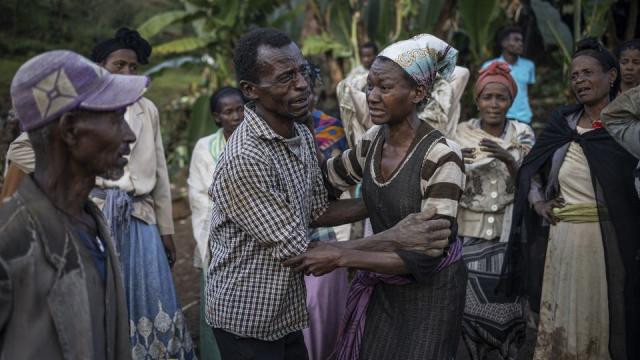
The UN on Tuesday sounded the alarm as Ethiopia grapples with an escalating cholera outbreak that has claimed hundreds of lives.
In the latest report released on Tuesday, the United Nations Office for the Coordination of Humanitarian Affairs (OCHA) said that nearly 400 new cases have been admitted to the Kumer Cholera Treatment Center in the past week, marking a staggering 50% increase compared to the previous week.
“The number of cases admitted to the Kumer Cholera Treatment Center (CTC) totals 393 people, a 50% increase in cases reported in the past week based on regional public health data,” OCHA said.
It added: “Hospitals are facing challenges in retaining cholera in-patients due to the unavailability of food for them, which exacerbates the risks of further spreading cholera among the community.”
Talking to Anadolu, Dr. Abdulbaarii Muhamed, a doctor at the Cholera Treatment Center, stressed the need for immediate support, stating: “We lack enough manpower to handle the large population, and people are dying every day.”
He added: “The situation is dire due to a critical shortage of ‘food’ and ‘clean water,’ which is amplifying patients’ suffering. We urgently need assistance to provide essential medical care to those affected.”
The World Health Organization’s (WHO) latest figures show over 20,000 cases of cholera and 271 related deaths across seven regions in Ethiopia.
WHO has established Cholera Treatment Centers across Ethiopia to deal with the outbreak that started in August last year.
“Now, individuals suffering from cholera can receive the quality medical attention they require,” WHO said in a statement.
However, local media sources suggest that the cholera outbreak has spread even more extensively, affecting 11 regions within the past year and claiming the lives of 320 people.
Tragically, deaths from cholera are being reported on a daily basis.
On Sunday alone, nine individuals succumbed to the disease in the western Benishangul-Gumuz Region, according to a health official, Abdulmunhem Al-Beshir.
The cholera outbreak has been triggered by food insecurity following a halt of food aid by organizations such as the UN’s World Food Program and the United States Agency for International Development(USAID), a lack of proper sanitation, and water supply problems all of which have combined to create a serious crisis.




